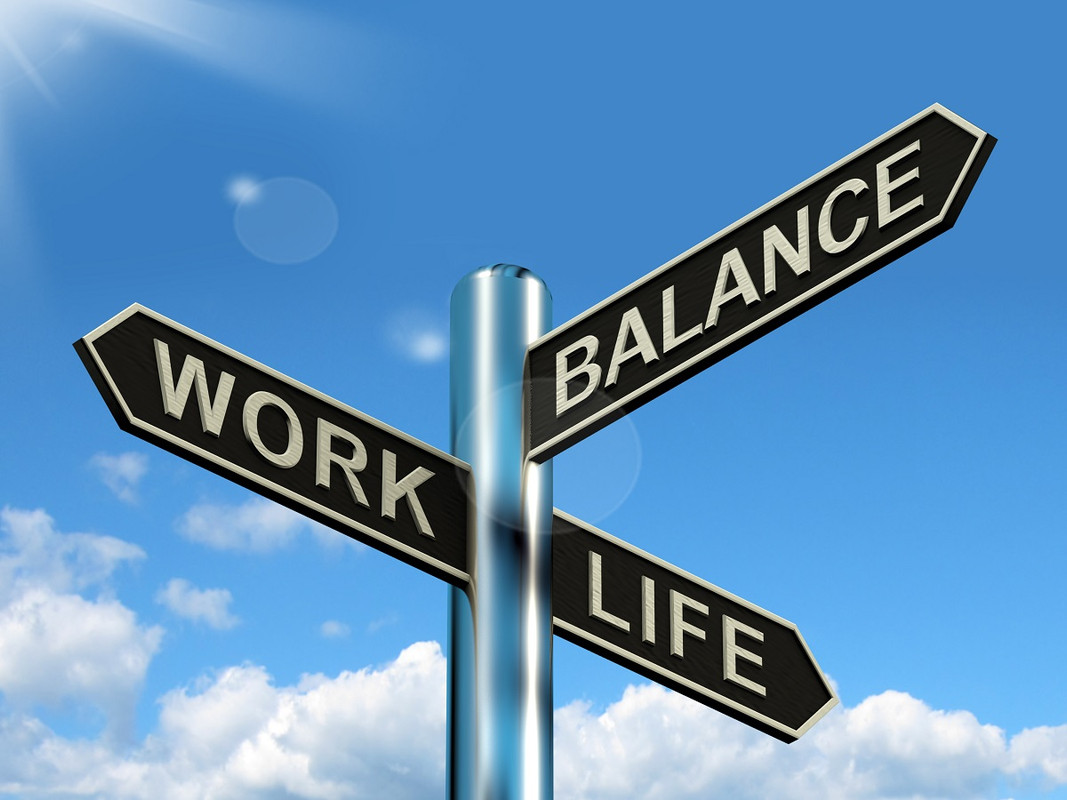Motivation
Risks To Poor Work Life Balance

Risks to poor work life balance in the present speedy world, laying out a decent balance between serious and fun activities is more crucial than any other time. However, numerous people end up wrecked by the requests of work, losing individual time and prosperity simultaneously. The perils of unfortunate balance between serious and fun activities are various and can emphatically harm both individual and expert pieces of life. In this article, we’ll dig into the implications of abandoning a balanced lifestyle, emphasize the necessity of equilibrium, and present effective solutions to recover control.
Understanding Risks To Poor Work Life Balance
Work-life balance refers to the balance among work commitments and home life. While the notion may vary for people, its essential is in ensuring that neither sector overshadows the other. Achieving this balance helps individuals to accomplish their professional duties effectively while preserving physical health, emotional well-being, and rewarding relationships.
When balance tilts too much toward work, the hazards of poor work life balance causes. These hazards extend beyond personal health, hurting productivity, relationships, and even corporate effectiveness.
1. Physical Health Risks

One of the most apparent and evident consequences of poor work-life balance is its toll on physical health. Extended work hours often lead to:
-
Ongoing Pressure: Relentless work tension can help cortisol levels, expanding the opportunity of coronary illness, hypertension, and diabetes.
-
Unfortunate Rest Examples: Late-night work or persistent availability intrudes on the body's regular rest cycle, bringing about a sleeping disorder and fatigue.
-
Disregard of Activity and Diet: A packed timetable gives little space to active work or sound eating routine, adding to weight gain, unfortunate energy, and decreased insusceptibility.
These actual repercussions are harming to individual wellbeing as well as lessen efficiency in the long haul.
2. Mental and Emotional Well-Being
The hazards of risks to poor work life balance are just as obvious in mental health. People stuck in an overwork cycle typically experience:
-
Burnout: A condition of profound, substantial, and mental exhaustion delivered by broadened pressure.
-
Anxiety and Depression: Continuous job pressure can generate emotions of powerlessness and lead to severe mental health concerns.
-
Reduced Cognitive Function: Lack of downtime decreases creativity, decision-making ability, and problem-solving capabilities.
-
These emotional issues further compound the stress, producing a vicious cycle that gets harder to stop.
3. Impact on Personal Relationships
A poor work life balance causes stresses ties with family and friends. Here’s how:
-
Limited Quality Time: Overcommitting to work offers little time to interact with loved ones, resulting to emotional isolation.
-
Increased Conflict: Stress from work might flow over into personal life, producing disputes and misunderstandings.
-
Missed Milestones: Skipping family occasions or disregarding children’s needs can produce long-term bitterness and regret.
Healthy relationships are a cornerstone of a satisfying life, and the hazards of poor work-life balance can endanger this foundation.
4. Decreased Job Performance
Ironically, overworking to attain job goals frequently backfires. Here’s why:
-
Reduced Productivity: Fatigue and burnout can impair attention, efficiency, and total productivity.
-
Lack of Innovation: Constantly working without breaks stifles creativity and problem-solving capacities.
-
Higher Error Rates: Overworked personnel are more prone to blunders, possibly hurting their reputation and the organization’s performance.
Organizations must acknowledge that pushing individuals beyond their limitations leads to declining rewards, since the dangers of poor work-life balance directly influence workplace outcomes.
5. Social Isolation
- Another danger to poor work-life balance is social isolation. As work absorbs most waking hours, individuals find themselves separated from their social connections. This disconnection can prompt depression, low confidence, and a debilitated feeling of having a place. Solid social ties are vital for mental wellbeing, and ignoring them can have extensive ramifications.
6. Long-Term Career Risks
Ironically, ignoring work-life balance for job development might harm long-term success. Continuous overwork can lead to:
-
Frequent Job Changes: Burnout typically causes individuals to resign, resulting in unpredictable professional pathways.
-
Stalled Professional Growth: A lack of balance affects learning and professional growth.
-
Damaged Reputation: Inconsistent performance due to burnout can undermine one’s position in the job.
Maintaining balance is key for establishing a successful and rewarding profession.
Risks To Poor Work Life Balance

1. Mental Health Issues
-
One of the most serious dangers of unfortunate balance between serious and fun activities is the impact on psychological well-being. Constant pressure from work can prompt tension, misery, and burnout. At the point when people need more chance to loosen up or participate in things they love, it creates a pattern of pressure that can feel overpowering.
-
For example, an examination by the World Wellbeing Association showed that extended working hours are associated with an expanded gamble of tension and sadness. At the point when work takes priority throughout private time, people might battle to foster proper adapting methods, prompting further deteriorating of emotional well-being.
2. Physical Health Deterioration
-
The outcomes of unfortunate balance between serious and fun activities reach out to actual wellbeing too. Delayed times of pressure can show up in various real issues, including coronary illness, heftiness, and compromised resistant frameworks. The individuals who underline work above private prosperity might neglect work out, great eating routine, and rest, which are all essential for supporting a sound way of life.
-
Besides, stationary work settings could prompt actual wellbeing hardships. As per an exploration by the American Diary of The study of disease transmission, the people who work extended periods of time are more inclined to experience sicknesses, for example, hypertension and coronary illness. The relationship between work-life unevenness and actual wellbeing is apparent and needs cautious review.
3. Strained Relationships
-
One more enormous risk to unfortunate balance between serious and fun activities is the strain it takes on private connections. At the point when work possesses a singular's significant investment, it can prompt dismissal of family and social ties. This could bring about sensations of depression and detachment from friends and family.
-
For instance, a bustling proficient may skip family occasions or neglect to invest significant energy with their accomplice, coming about to disdain and correspondence breakdowns. Research uncovers that the people who keep a fair way of life will generally have more grounded connections and better correspondence capacities. Perceiving the risks of unfortunate balance between serious and fun activities is indispensable for keeping individual ties and encouraging great connections.
4. Decreased Productivity and Job Satisfaction
-
Unexpectedly, individuals who exhaust themselves looking for accomplishment might find that their efficiency diminishes in the long haul. The dangers to unfortunate balance between fun and serious activities regularly lead to exhaustion and lessened inspiration, in the long run compromising position execution. Representatives that are worn out may battle to think, satisfy cutoff times, and convey quality work.
-
Moreover, when people feel overpowered by their assignment, their work bliss could decline. A Gallup review showed that representatives who see an unfortunate balance between serious and fun activities are bound to be separated working. This withdrawal might prompt higher turnover rates and expanded costs for managers, making a cycle that is negative to the two people and organizations.
5. Lack of Personal Growth
-
A terrible balance between fun and serious activities could restrict self-improvement and personal growth. At the point when work comes first, people might spurn open doors for learning, ability advancement, and following side interests beyond their work environment. This stagnation can prompt feelings of unfulfillment and discontent with life.
-
Participating in leisure activities, going to courses, or getting some margin for self-reflection are pivotal for self-improvement. The perils to unfortunate balance between serious and fun activities can bring about botched opportunities for progress, restricting people from accomplishing their maximum capacity both actually and expertly.
Read Also: How To Stay Motivated In Your Career
Strategies to Improve Work-Life Balance

Understanding the risks of inadequate work-life balancing is the first step towards genuine adjustment. Here are concrete techniques to establish a healthy balance:
1. Set Boundaries
-
Define Work Hours: Stick to a fixed schedule and avoid dragging work into personal time.
-
Disconnect Digitally: Limit after-hours emails and notifications to minimize persistent connectedness.
2. Prioritize Self-Care
-
Standard Activity: Integrate actual activity into your daily practice to lessen pressure and upgrade imperativeness.
-
Satisfactory Rest: Go for the gold long stretches of phenomenal rest every night to recharge your body and brain.
-
Smart dieting: Fuel your body with adjusted dinners to support energy and consideration.
3. Time Management
-
Prepare: Use instruments like schedules or plans for the day to orchestrate time for both business and individual interests.
-
Delegate Errands: Stay away from constantly fussing over and trust your group to share obligations.
4. Nurture Relationships
-
Schedule Family Time: Dedicate certain hours to bond with loved ones.
-
Maintain Social Ties: Make an effort to meet friends or join social groups to stay connected.
5. Seek Professional Support
-
Counselling: Therapists or counsellors can assist negotiate stress and achieve equilibrium.
-
Workplace Support: Speak with HR or management about flexible hours or workload changes.
The Role of Organizations
Companies have an essential role in minimizing the risks of bad work-life balance. Organizations can:
-
Promote Flexibility: Offer remote employment, flexible hours, or reduced workweeks.
-
Energize Breaks: Cultivate a culture that values rest and mending.
-
Give Wellbeing Projects: Drives like exercise centre participations, emotional well-being assets, and stress the executive’s classes might help representative prosperity.
When employees attain balance, both people and companies prosper.
Conclusion
The risks to poor work life balance are apparent, with substantial ramifications for health, relationships, career advancement, and general enjoyment. While the route to balance may take intentional effort and lifestyle modifications, the rewards are well worth it. By perceiving the ramifications of irregularity and executing proactive strategies, people might recapture their time, prosperity, and delight. Businesses, as well, should elevate balance between serious and fun activities to fabricate a better, more useful staff.





